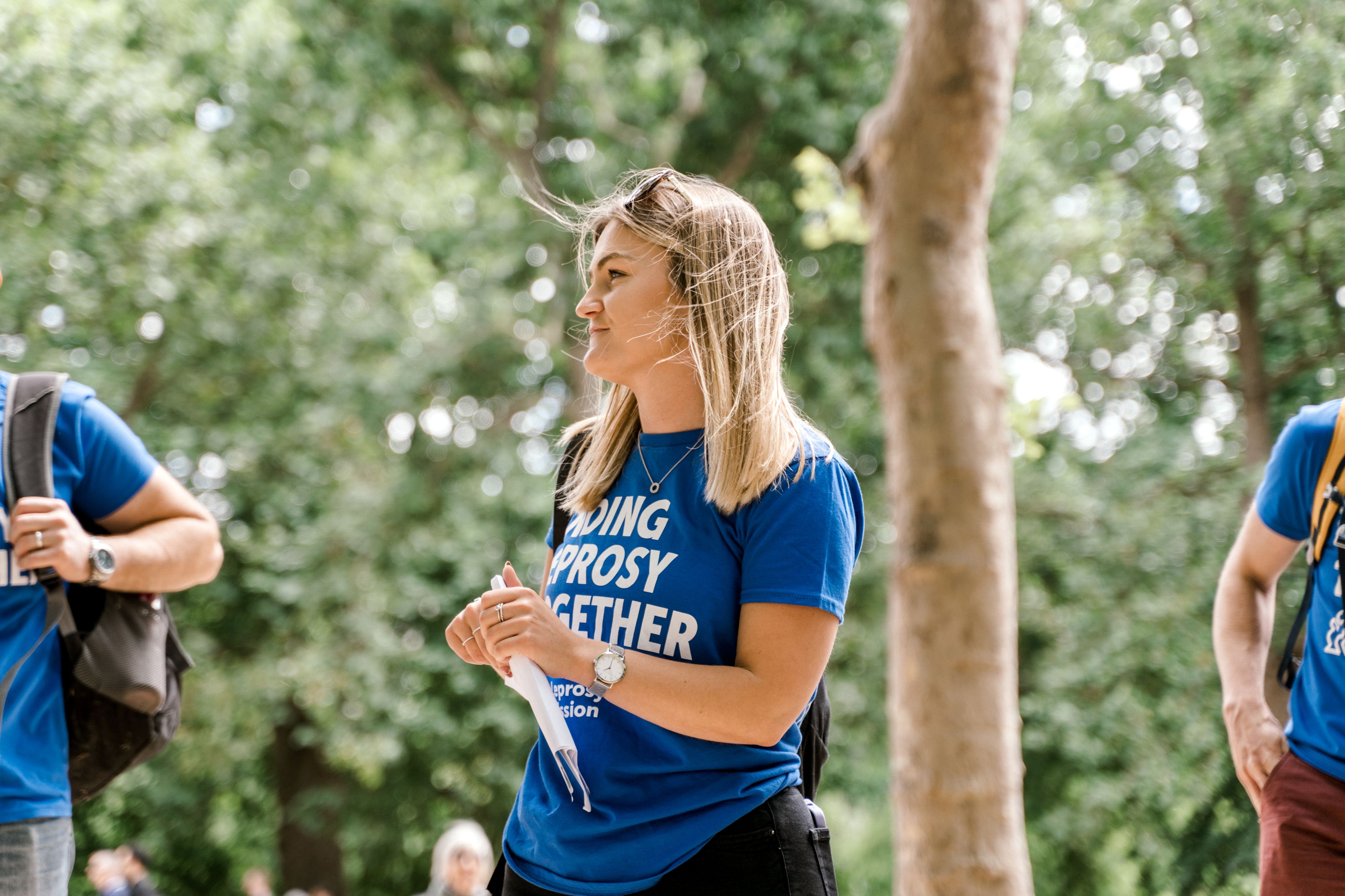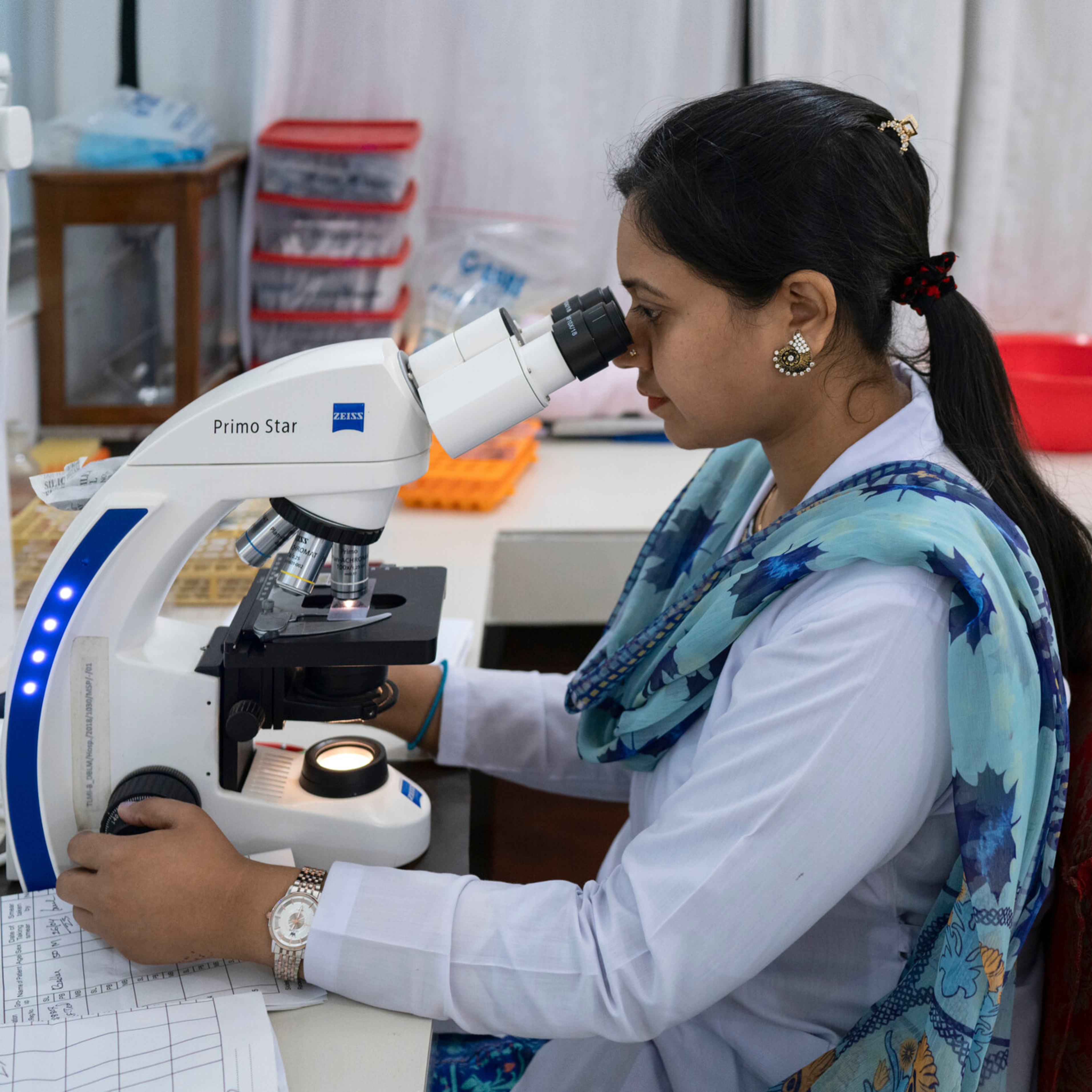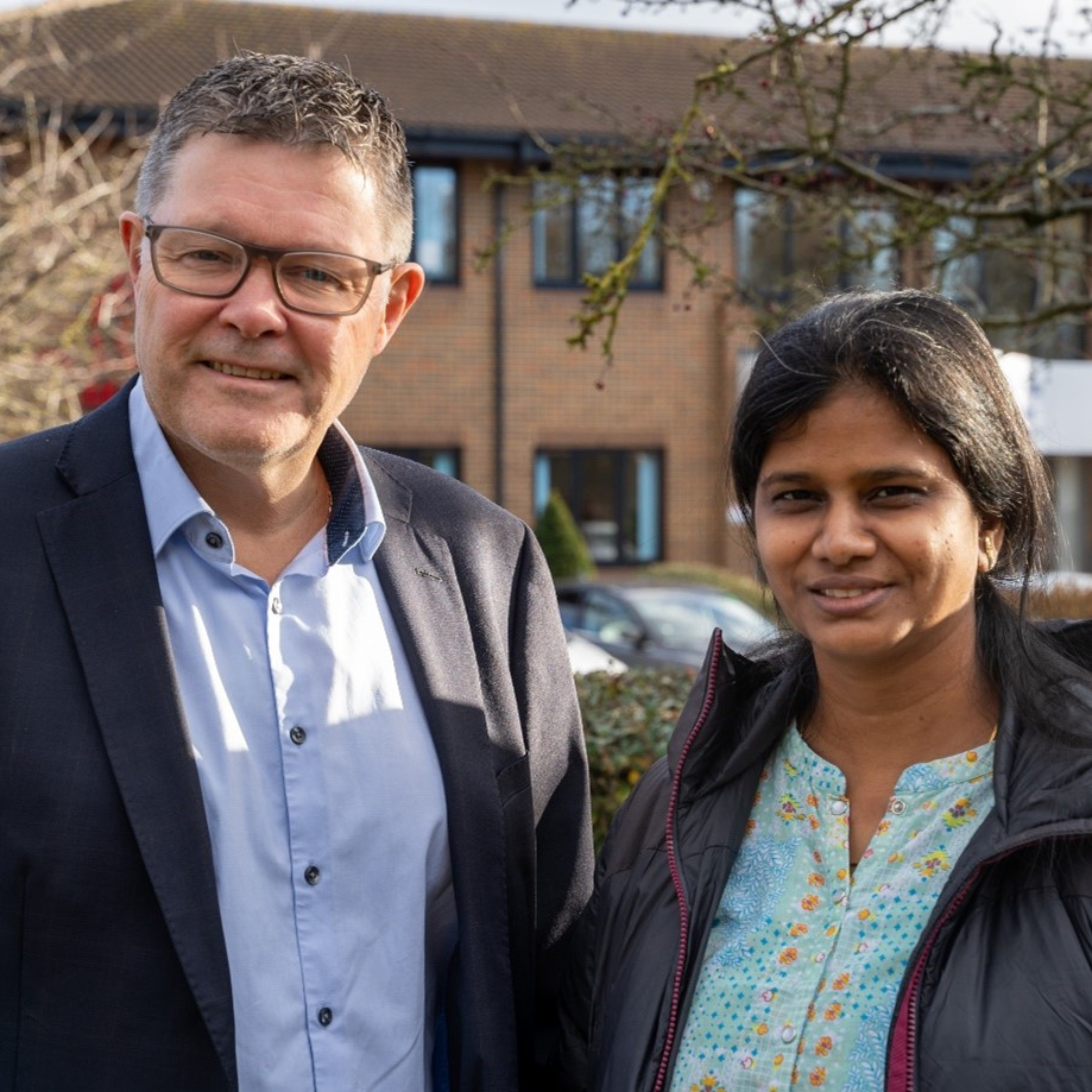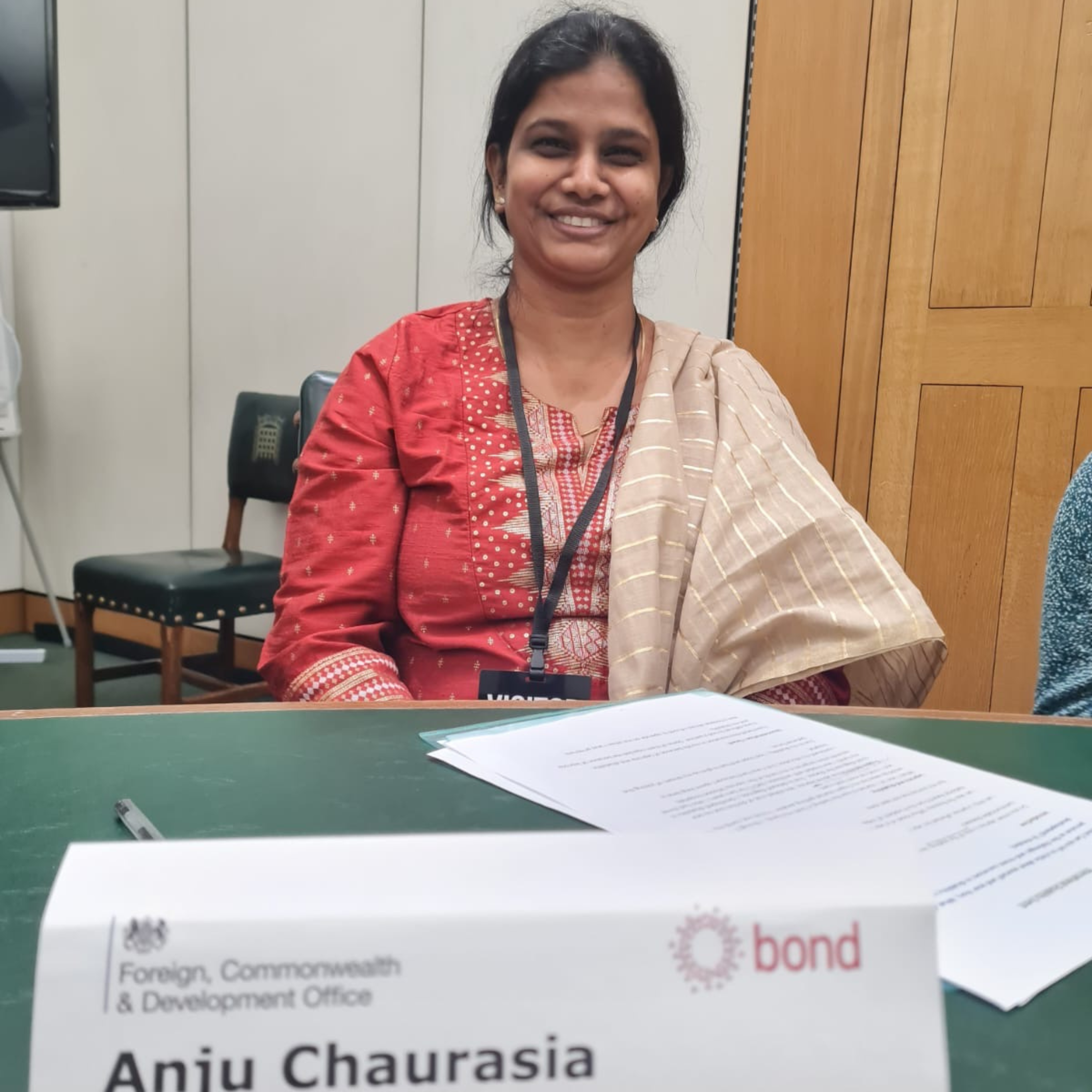Research and advocacy

Today, far too many cases of leprosy still go undetected. Scientific breakthroughs are vital to accelerate the race to end leprosy. Research continues in the search for new user-friendly diagnostic tests. These are desperately needed so that people can be cured of leprosy in its early stages. This stops nerve damage which can lead to a lifetime of disability. Fast treatment also stops the spread of leprosy.
In 2023 we began a partnership with world-leading leprosy experts from the University of Leiden. A four-year research study will bring us one step closer to a rapid diagnostic test for leprosy. Skins smears from someone with leprosy symptoms are currently sent to a lab for diagnosis. But often laboratories are too far away from the patients to be used routinely. A simple test that detects leprosy before symptoms emerge would be a game changer, especially if this does not require laboratory analysis.
We cannot fight leprosy alone, especially in the field of research. In 2023, we established new partnerships and continued relationships with world-leading research teams. These include the London School of Hygiene and Tropical Medicine and Liverpool School of Tropical Medicine. We also partnered with the Universities of Manchester, Birmingham and Warwick.
In 2023, we worked with Brighton & Sussex Medical School on a mental health project in Bihar in India and in Nepal. Surveys were undertaken to improve our understanding about the impact of leprosy on mental health. Partnerships have been forged with local government mental health services ahead of the next phase of the study.
Right: A technician works in the research laboratory at DBLM Hospital in Bangladesh. (© Fabeha Monir)
Empowering others through advocacy
Being an advocate for others can change the world. Leprosy is one of the 20 neglected tropical diseases (NTDs) identified by the World Health Organization. These diseases affect one in five people globally. It is unjust that they continue to cause such devastation to the world's poorest people.
To mark World Neglected Tropical Disease Day in January 2023, an exhibition took place in Parliament. It was held in partnership with the All-Party Parliamentary group on Malaria and NTDs. Through art, photography and film, the plight of people affected by NTDs was brought to life in a moving way. The exhibition also showed how UK Aid funded projects had helped to combat NTDs. People affected by leprosy played a key role in this powerful exhibition. Attended by MPs and peers, it was a golden opportunity to demonstrate the power UK Aid has to change lives.
Over 500 Leprosy Mission supporters kindly took the time to email their MP asking them to attend the event. Many received positive responses, including from the International Development Secretary Andrew Mitchell. Mr Mitchell expressed his support for continued UK Aid investment into tackling NTDs.
In December, the BOND Disability Development Group hosted an event in Parliament to coincide with International Day of Persons with Disabilities. The event celebrated the innovative ways in which people with disabilities had been included in daily life. It also raised the many challenges of disability inclusion, both in the UK and overseas. It called for more to be done to ensure people with disabilities have the same life opportunities as everyone else.
Left: Anju Chaurasia, Senior Administrator at Muzaffarpur Hospital in India, with Chief Executive Peter Waddup.
Below: Anju Chaurasia at an event to celebrate the International Day of People with Disabilities at the Houses of Parliament in December.
Anju's story
We were so proud to hear Anju Chaurasia, Senior Administrator at Muzaffarpur Hospital, tell her story in Parliament. Anju spoke with such courage as she shared her personal experience of leprosy with MPs, peers and civil servants.
Anju was diagnosed with leprosy when she was just 14. Nerve damage caused her fingers to stiffen and bend inwards towards her palms. Before long she had to rely on her mother and sister for the simplest of tasks, even combing her hair.
Thankfully, Anju's leprosy was treated before it further destroyed her health. Two years after diagnosis, she had reconstructive surgery on her hands. Anju's surgery was performed by Dr Premal Das at The Leprosy Mission's Naini Hospital. Dr Premal now heads up The Leprosy Mission's work across the whole of India! He remembers operating on Anju and is so proud of the shining star she has become.
The surgery, costing just £140, was the catalyst to the transformation in Anju's life. We pray that many more people will be able to have this simple surgery and can go on to live transformed lives.



